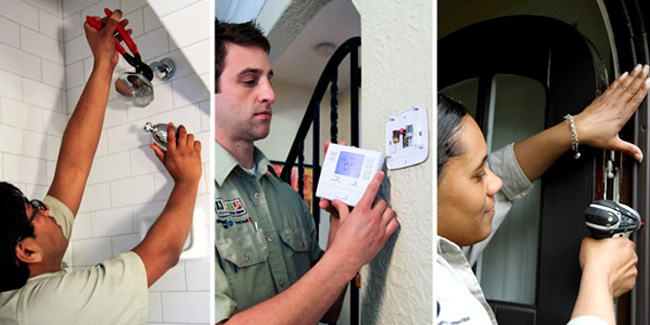<p style="text-align: justify;">With the rising cost of everything nowadays, consumers are always looking for ways to save on their expenses – be it on food, daily needs, transportation, utilities, and more. This being said, a significant part of our monthly budget goes to our utility bills. But we can’t really complain, because we need energy for heating, cooking, and other necessary activities in order to be comfortable and be more efficient around the home.</p>
<p style="text-align: justify;">Whilst you can save on heating and cooking by opting for such energy sources as LPG, or Liquefied Petroleum Gas, which is more economical and easier to install, you can also do something about your appliances and how you use them. Mind you, if you do not have the funds to purchase energy efficient appliances and gadgets at the moment, you can still save on your energy bill by making some specific changes on your usage.</p>
<p style="text-align: justify;"><img class="aligncenter size-full wp-image-12076" alt="Top Money-Saving Tips For Better Energy Efficiency For Your Home " src="https://medusamagazine.com/wp-content/uploads/2014/01/Top-Money-Saving-Tips-For-Better-Energy-Efficiency-For-Your-Home.jpg" width="500" height="392" /></p>
<p style="text-align: center;">
<h3 style="text-align: justify;"><strong>The Gadgets and Appliances you use </strong></h3>
<p style="text-align: justify;">Every household today is equipped with dozens of gadgets which are all designed to make our lives better and more convenient. We make use of light bulbs, washing machines, televisions, and other gadgets which use up electricity. If you cannot switch to energy-efficient appliances just yet, you can already begin by being more conscientious about your electrical and electronic equipment.</p>
<p style="text-align: justify;">One guaranteed way of saving money is by leaving our older and less efficient appliances unplugged when they are not in use. Did you know that if all your appliances are on standby all the time, this could increase your electricity bill by as much as £35 a year? Taken over a period of a few years, you could be paying for a significant amount indeed. If you do not use your television regularly, for instance, there is no reason for it to be on standby. The same goes for other gadgets such as computers, stereo equipment, and the like.</p>
<h3 style="text-align: justify;"><strong>Light Bulb Efficiency</strong></h3>
<p style="text-align: justify;">When it comes to light bulbs and other lighting fixtures, we are often not aware of how much it costs to operate them. Traditional light bulbs burn more energy, and have a lower lifespan than LED or energy-efficient bulbs. The good news is that as of late 2012, shops have no longer been allowed to sell traditional bulbs of the incandescent type. This is hardly surprising, since traditional bulbs only last for one year, whilst energy-efficient light bulbs can actually last for as long as ten years.</p>
<p style="text-align: center;"><img class="aligncenter size-Correct wp-image-12045" title="Top Money-Saving Tips For Better Energy Efficiency For Your Home " alt="Top Money-Saving Tips For Better Energy Efficiency For Your Home " src="https://medusamagazine.com/wp-content/uploads/2014/01/Top-Money-Saving-Tips-for-Home-600x449.jpeg" width="600" height="449" /></p>
<p style="text-align: justify;">Replace all your light bulbs around the house with LED or energy-saving light bulbs. If you have been making use of 40W bulbs, the equivalent of this in energy-efficient bulbs is around 8W. Traditional 60 watt bulbs are equivalent to approximately 10 watts in energy-saving bulbs, and 100 watt bulbs are equal to around 15 to 20 watts with regards to energy-saving light bulbs. If you replace a 40 watt traditional bulb with an 8 watt bulb, you will be able to save up to 20% on energy costs. The light we use for our homes accounts for about 18% of our total electricity bill, so you can just imagine how much you will save both in the short- and long-term merely by replacing all your bulbs.</p>
<p style="text-align: justify;">In the long run, it is to our best advantage to be more careful when it comes to our energy consumption. We can make these resources work for us in many ways, as attested to by LPG suppliers like www.avantigas.com.</p>

Top Money-Saving Tips For Better Energy Efficiency For Your Home
